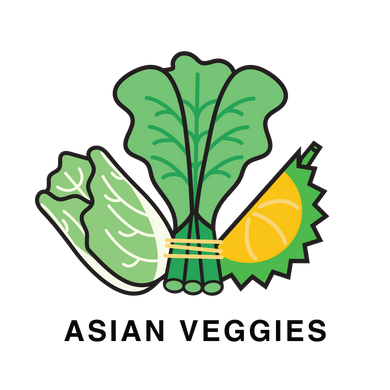

We Now Deliver To Staten Island

Heart of Veggies, A Collaboration Between Asian Veggies and Heart of Dinner to Serve the AAPI Elder Community

We Now Deliver To The Bronx

We Now Deliver To Nassau County - Long Island

Veggie of the Week: Garlic

Improvements Are Coming To Asian Veggies!

Veggie of the Week: Tofu
Okay, so it's not technically a veggie, but tofu definitely deserves a nutrition spotlight. Tofu is made from ground soybeans that are coagulated into curds and then pressed into a block - hence the name, bean curd. The blocks can be sold as silken, soft, firm or extra firm, giving a cook many options for incorporating tofu into a dish or making it the star of the show.
Tofu is an excellent source of plant-based protein, making it popular among the vegetarian/vegan crowd. Half of a package of tofu contains about 18 grams of protein, which is almost the amount of protein found in three ounces of chicken. Plus, the soy in tofu is considered a "complete" protein, meaning it contains all of the necessary amino acids that our body can't make and must get from food. The fat found in tofu, similarly to nuts and seeds, is mostly in the form of heart-healthy unsaturated fat. Tofu is also a pretty good source of iron, so you don't always have to turn to red meat to get your fill of this micronutrient, which is essential for red blood cells.
Tossed in stir frys, salads or soups, tofu will easily take on the flavor of any dish. And you can rest assured that you're adding a protein-rich, nutrient-dense "veggie" to your meal.

Veggie of the Week: Shiitake Mushrooms

Veggie of the Week: Kabocha Squash
Kabocha squash, commonly known as Japanese pumpkin, is a hearty, starchy member of the winter squash family. Like its siblings, kabocha squash is a good source of carbohydrates and some essential vitamins and minerals. At about 50 calories per cup, it contains around 5 grams of natural sugar and minimal fat. Plus, the seeds are edible! Roast ‘em up and add to them your diet for additional protein and heart-healthy unsaturated fat.
All squash varietals are pretty good sources of vitamin C, as well as potassium and beta-carotene. Diets high in potassium are associated with lower blood pressure, thanks to the mineral’s beneficial interaction with sodium. Beta-carotene is a phytochemical that serves as our body’s precursor to vitamin A, which is important for healthy vision, among other things.
Kabocha squash can be prepared and cooked in several different ways including roasted, stewed or pureed into soup. But no matter which way you prepare it, kabocha squash will be a nutrient-dense and delicious addition to your diet.

Nutrition Spotlight: Cilantro
In the world of herbs and spices, none may be more widely used in cooking than cilantro. These fragrant leaves actually come from the coriander plant, which is native to the European-Mediterranean region but currently planted all over the world. Cilantro is extremely versatile – while it is typically found in Asian cuisine, you can also find the herb served as a garnish in tacos, salads and blended in juices.
Like most culinary herbs, cilantro has been used in many countries in traditional medicine to treat various health conditions, like inflammation, anxiety, insomnia, and digestive issues. Unfortunately, we can’t give cilantro credit for being able to treat these conditions, as there’s not enough supported evidence to do so. But the plant definitely has some nutritional benefits that can’t be disputed. Cilantro is extremely low in calories, with essentially no fat or sugar. For those who are mindful of their salt intake, cooking with cilantro is a great way to add flavor to a dish without adding sodium. The herb contains vitamins and minerals like vitamin A and potassium, though in relatively small amounts. Finally, spices like cilantro contain polyphenols – compounds with antioxidant properties that may help protect us from various diseases.
So the next time you’re making…really anything, sprinkle a handle of cilantro into your dish. You’ll not only enhance the flavor of your food, but you’ll add extra nutrients to your diet. And who doesn’t want that?
- 1
- 2



